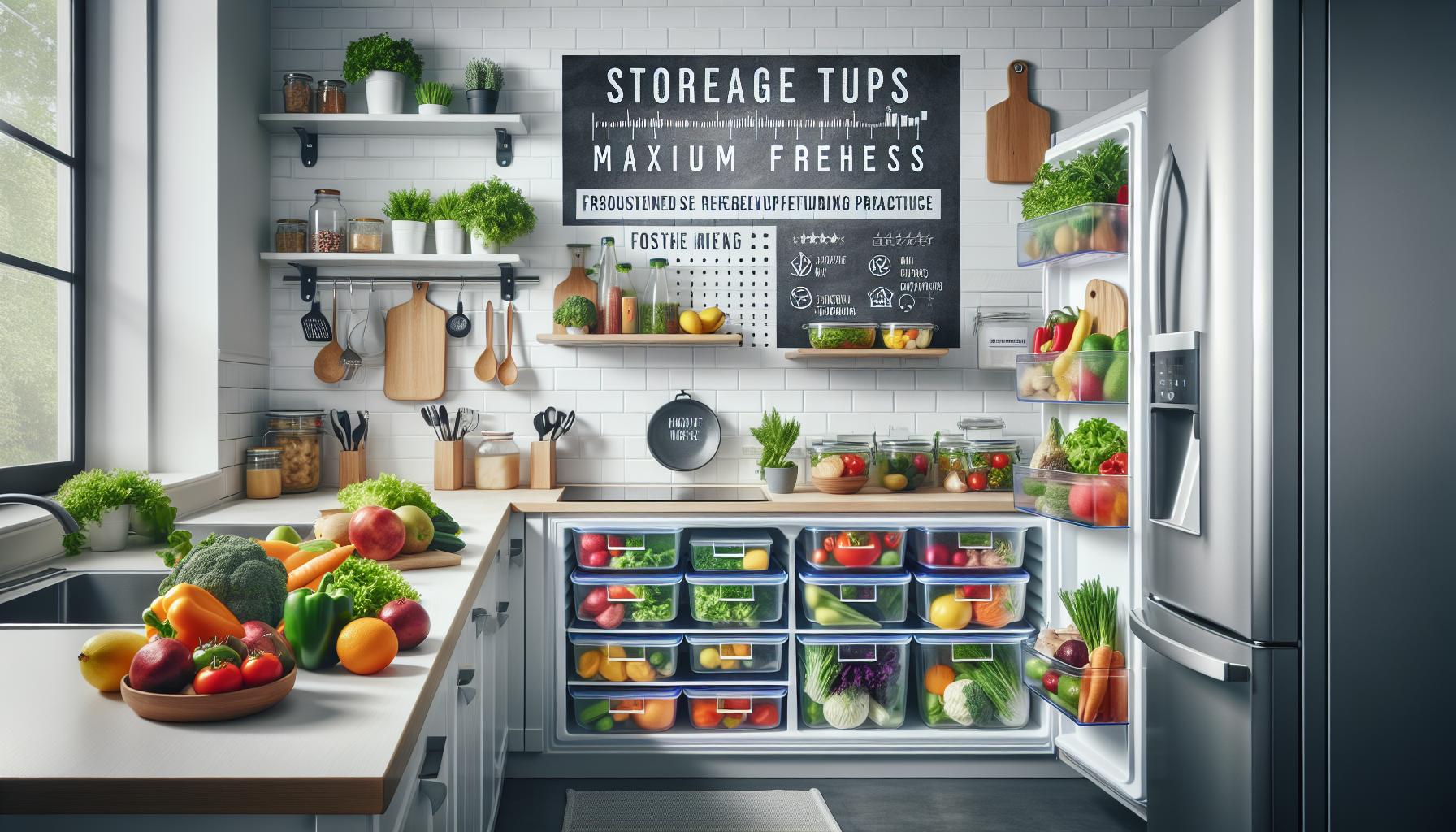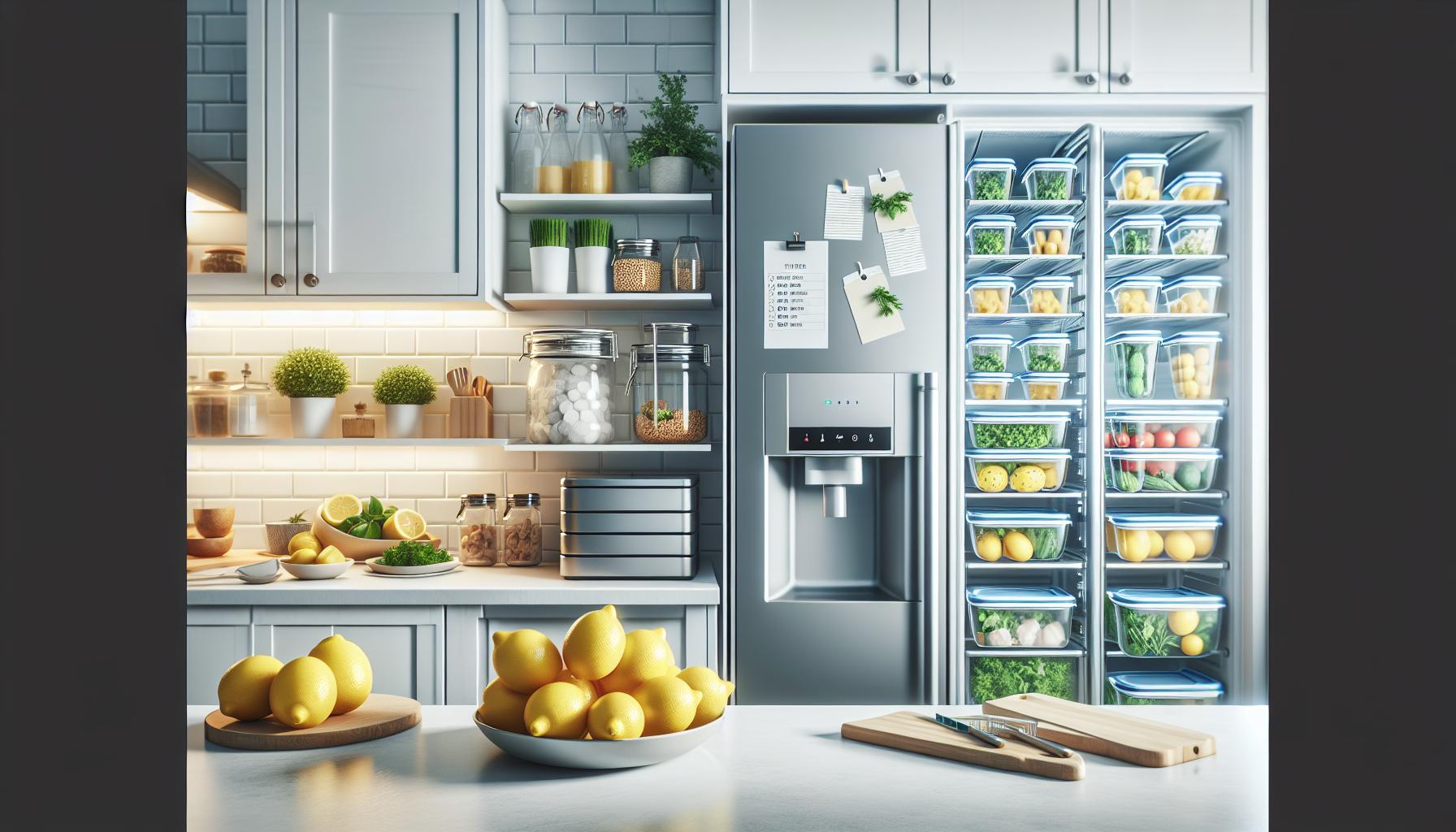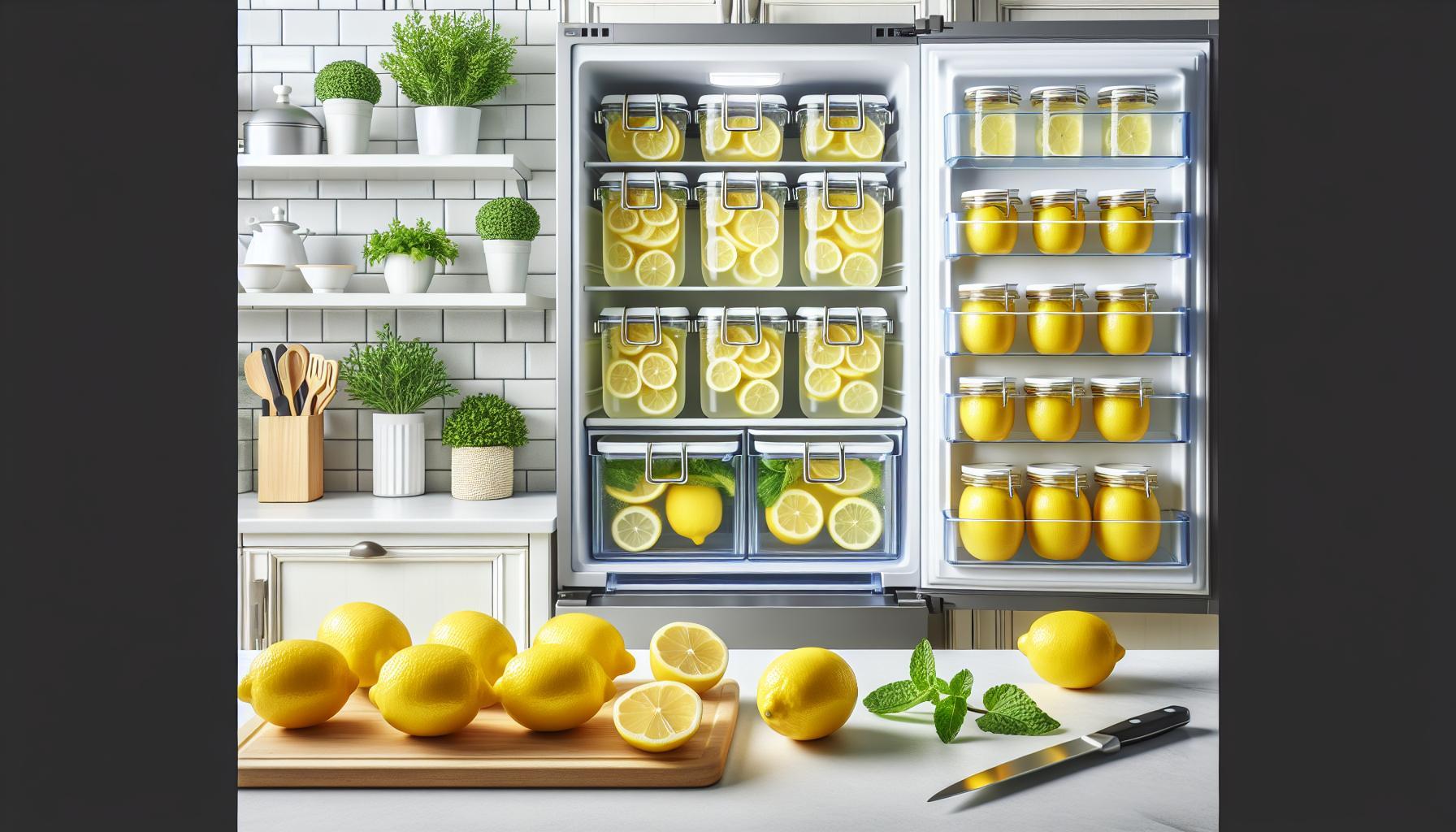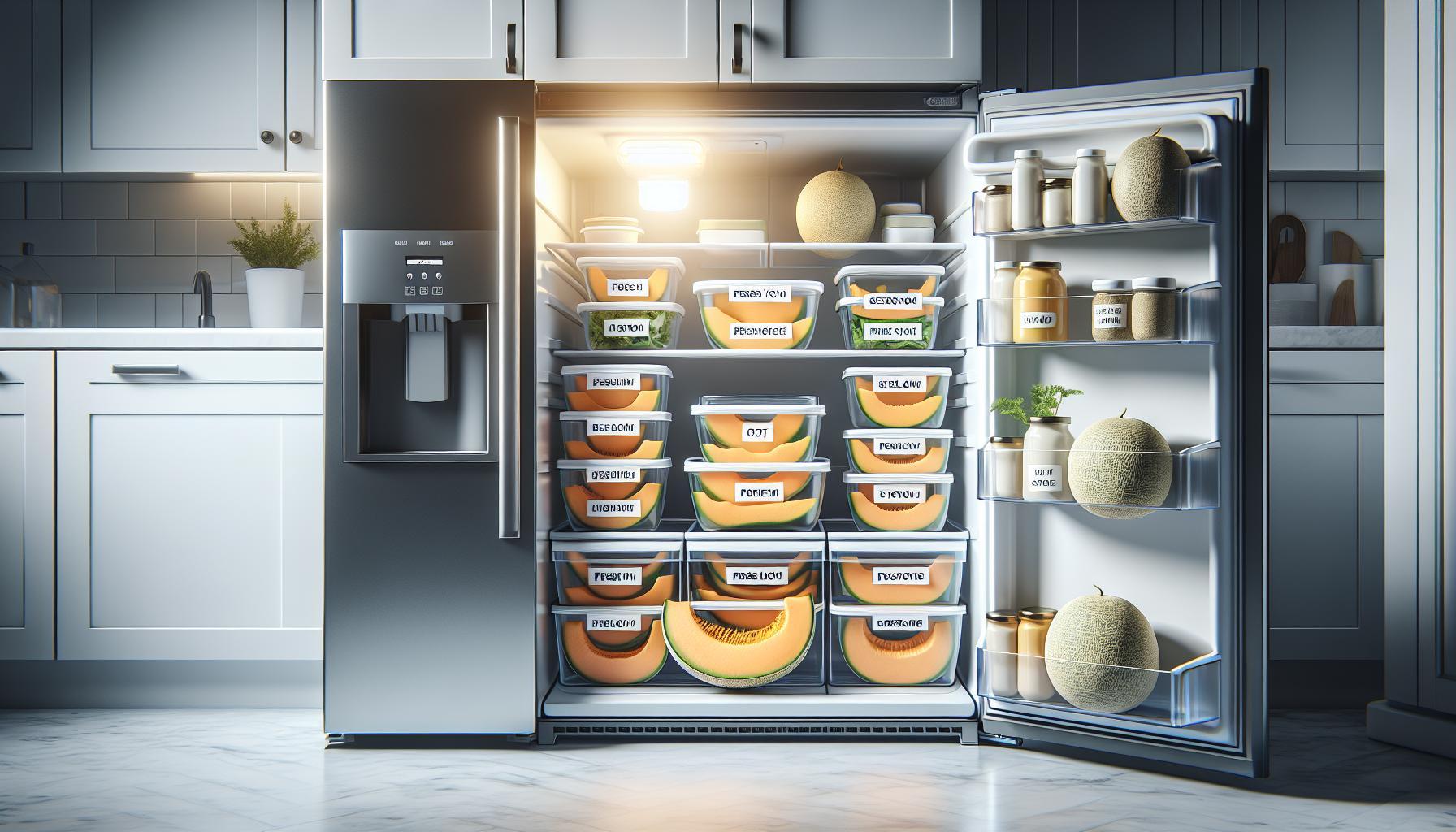Did you know that proper storage can significantly extend the life of your lemon juice? Whether you’re using it to brighten up dishes, concoct refreshing beverages, or boost your health with its vitamin C, understanding how long lemon juice lasts in the fridge is crucial. Many home cooks often wonder how to maintain that zesty flavor while ensuring safety in food preparation.
Lemon juice, when stored correctly, can remain fresh for several weeks, but improper storage can lead to spoilage and off-flavors. Knowing the best practices for storing lemon juice not only saves you money but also enhances the quality of your culinary creations. Dive into this article to explore practical storage guidelines, safety tips, and find out how to keep that vibrant zest enduring for all your cooking and baking needs!
How Long Does Fresh Lemon Juice Last?
Fresh lemon juice is a vibrant addition to many dishes and beverages, but understanding its shelf life is crucial for maintaining both flavor and food safety. When stored properly in the refrigerator, fresh lemon juice typically lasts for about 3 to 5 days. This short lifespan is primarily due to its natural acidity and the fact that it lacks preservatives, making it more susceptible to spoilage. After this period, although the juice may still appear fine, degrading flavor and potential bacterial growth can pose risks if consumed.
To maximize the freshness of lemon juice, it’s best to store it in an airtight container, preferably glass, which prevents chemical reactions that can occur in plastic over time. Additionally, keep the container in the back of the refrigerator where temperatures remain constant and coldest. If you’ve squeezed a larger quantity than needed, freezing is an excellent option; lemon juice can be frozen in ice cube trays and then transferred to a sealed bag. This method retains the quality for about 3 to 6 months, allowing you to enjoy that freshly squeezed flavor long after your lemons have dried up.
When it comes to knowing whether your lemon juice has gone bad, be vigilant. Signs of spoilage can include off smells, changes in color, or the development of mold. It’s always better to err on the side of caution; if there’s any doubt about the quality, discard the juice to avoid any health issues. By following these storage and safety tips, you can ensure that your lemon juice remains bright, zesty, and ready for your culinary adventures while minimizing waste.
Understanding Lemon Juice Shelf Life
Fresh lemon juice is a culinary staple that adds a burst of flavor to dishes and beverages, but it’s essential to understand its shelf life to ensure both taste and safety. When kept in the refrigerator, fresh lemon juice typically lasts for about 3 to 5 days. This limited lifespan is primarily due to its natural acidity and the absence of preservatives, which makes it prone to spoilage. While the juice may look and smell fine after this period, subtle changes in flavor and the risk of bacterial growth can pose health concerns.
To enhance the longevity of lemon juice, proper storage is key. Utilizing an airtight container, preferably glass, is highly recommended. Glass prevents chemical reactions that can occur when juice is stored in plastic, thereby helping preserve flavor. Additionally, place the container in the back of the refrigerator, where temperatures remain consistently cold. If you find yourself with excess juice, freezing is an excellent solution. Pouring fresh lemon juice into ice cube trays and transferring the cubes to a sealed bag can extend its quality for about 3 to 6 months, allowing you to enjoy that fresh taste even beyond the life of your lemons.
Spoilage can occur rapidly, so it’s important to be vigilant. Look for signs such as off odors, changes in color, or the presence of mold. If you notice any of these indicators, it’s best to discard the juice to prevent any health issues. By following these simple yet effective storage practices, you can ensure your lemon juice remains fresh and zesty, enhancing your culinary creations while minimizing waste.
Storage Tips for Maximum Freshness
To keep your lemon juice as fresh and flavorful as possible, adhering to effective storage practices is essential. The right methods not only enhance its longevity but also guard against spoilage and maintain its vibrant taste. One standout approach is using an airtight glass container for storage. Glass is inert, meaning it won’t react with the acidic components of lemon juice, preserving its flavor. Additionally, storing the container in the back of the refrigerator, where temperatures are more stable, helps minimize exposure to warmer air that might occur when the door is opened frequently.
When fresh lemon juice is stored properly, it can remain at its best for about 3 to 5 days in the refrigerator. If you’ve squeezed out excess juice and want to keep it for an extended period, freezing is an excellent option. You can pour the juice into ice cube trays, freeze it, then transfer the cubes to a sealable plastic bag. This method not only makes it convenient to use in the future but also allows you to maintain the juice’s quality for 3 to 6 months.
Monitoring for spoilage is crucial. Always check for off odors, discoloration, or any signs of mold. If you detect any of these changes, it’s advisable to discard the juice to avoid health risks. By following these straightforward storage tips, you can ensure that your lemon juice enhances your recipes while remaining safe and delicious.
Signs of Spoilage in Lemon Juice
Recognizing when lemon juice has spoiled is essential for both food safety and quality. Freshly squeezed lemon juice, while tart and vibrant, can undergo changes that compromise its flavor and safety after a period of storage. To help ensure you only use the best juice in your culinary endeavors, it’s vital to remain vigilant for a few key signs of spoilage.
One of the first indicators that lemon juice has gone bad is an off odor. If your lemon juice emits a sour or rancid smell that deviates from its characteristic citrus aroma, it’s a strong sign that it has spoiled. Additionally, pay attention to changes in color; fresh lemon juice maintains a bright, clear appearance. If you notice any cloudiness or sediment forming, this could suggest fermentation or microbial growth, indicating it’s no longer safe to use.
Another critical aspect to monitor is the presence of mold. If you spot any fuzzy spots or film on the surface of the juice, it is imperative to discard it immediately, as mold can pose serious health risks. Always be cautious and lean towards safety-when in doubt, throw it out. Additionally, check for changes in taste; sourness beyond the natural tartness of lemon juice can indicate spoilage.
Summary of Spoilage Signs
- Off odors: Unpleasant or sour smells are red flags.
- Discoloration: Look for cloudiness or sediment.
- Mold: Any visible growth should lead to disposal.
- Unusual taste: An overly sour flavor can indicate spoilage.
By regularly inspecting your lemon juice for these indicators, you can ensure that what you use not only enhances your dishes but also keeps you safe from foodborne illness.
Best Practices for Freezing Lemon Juice
One of the best ways to ensure that your lemon juice remains fresh and flavorful long after it’s been squeezed is to freeze it. Freezing lemon juice not only extends its shelf life but also preserves its vibrant taste and nutritional benefits. When stored properly, frozen lemon juice can maintain its best quality for about three to four months, although it can still be safe to consume beyond that timeframe if stored under optimal conditions.
To freeze lemon juice effectively, start by squeezing fresh lemons and straining the juice to remove any seeds or pulp. Once you have clean juice, consider portioning it into ice cube trays for easy use later on. Simply pour the juice into the trays, filling each compartment about three-quarters full to allow for expansion during freezing. Once frozen, transfer the lemon juice cubes to a resealable plastic bag or airtight container, labeling it with the date to keep track of freshness. This method not only saves space but also allows you to thaw only the amount you need for any given recipe.
It’s important to ensure that your lemon juice is as fresh as possible before freezing, as the quality will influence the flavor once thawed. Additionally, try to avoid freezing juice in glass containers, as they may break due to the expansion of the liquid. For added ease, you might consider adding lemon zest to your lemon juice before freezing; this will enhance the flavor profile when you use it later, adding a delightful citrus burst to your culinary creations.
When you’re ready to use your frozen lemon juice, simply remove the desired amount from the freezer and let it thaw in the refrigerator or at room temperature. For urgent needs, you can even add the frozen cubes directly to hot dishes or drinks, allowing them to melt quickly. With these simple tips, you can enjoy the refreshing taste of lemon juice in your cooking and drinks year-round, without worrying about spoilage.
Using Expired Lemon Juice Safely
Using expired lemon juice doesn’t have to pose a risk if you know how to handle it safely. While fresh lemon juice is typically best consumed within a week when stored in the refrigerator, it’s not uncommon to find a bottle that has lingered longer than intended. The good news is that lemon juice’s high acidity can help inhibit the growth of harmful bacteria, allowing it to remain safe for consumption beyond its printed expiration date, provided it has been stored properly.
Before using any expired lemon juice, conduct a thorough inspection. Look for signs of spoilage such as an off or rancid smell, unusual cloudiness, or significant sediment at the bottom of the container. If the juice appears normal, but it’s a few weeks past its expiration date, consider performing a taste test. Start with a small amount; if it tastes off or drastically different from fresh juice, it’s best to discard it.
If your expired lemon juice passes these checks, you can still use it in various ways to avoid wasting it. Here are some practical applications:
- Culinary Uses: Use it in marinades, salad dressings, or as a flavoring agent in sauces. The cooking process can mitigate any potential spoilage effects.
- Cleaning Agent: The antibacterial properties of lemon juice make it an excellent choice for cleaning. Use it to freshen up surfaces, remove stains, or brighten whites in laundry.
- DIY Beauty Treatments: Lemon juice can be used in homemade face masks or hair treatments, contributing to its value even after its peak freshness has passed.
In summary, while consuming expired lemon juice can be relatively safe if you follow these guidelines, always prioritize food safety. When in doubt, discard it and opt for fresh juice to ensure you enjoy the best flavor and nutritional benefits. By implementing these practices, you can confidently navigate expired lemon juice, making the most of your kitchen staples while minimizing waste.
Nutritional Benefits of Fresh Lemon Juice
Fresh lemon juice is not only a refreshing addition to many dishes but also packed with nutritional benefits that can significantly enhance your health. Rich in vitamin C, this tangy juice boosts the immune system, promoting overall wellness and helping to ward off illnesses, particularly during cold and flu season. Just two tablespoons of fresh lemon juice can provide about 25% of your daily vitamin C needs, a potent antioxidant that aids in collagen formation for healthy skin and helps fight free radicals in the body.
Moreover, lemon juice contains several other beneficial compounds, including flavonoids, which are known for their anti-inflammatory and antioxidant properties. These compounds can contribute to better digestion and improved metabolism. The citric acid in lemon juice may even help prevent kidney stones by increasing urine volume and helping to dilute the minerals that cause stones to form. In addition, incorporating fresh lemon juice into your daily routine can promote hydration, especially when added to water, making it a flavorful way to encourage better fluid intake.
For those seeking weight management solutions, fresh lemon juice can be particularly helpful. Its natural acidity may help enhance satiety and promote a feeling of fullness, potentially reducing overall calorie intake. Plus, it can elevate the flavor of water, encouraging individuals to choose healthier hydration options over sugary beverages.
To fully harness these benefits, it’s best to incorporate fresh lemon juice into your meals promptly after juicing. While it can last about a week in the fridge, the nutritional content diminishes over time, making it advisable to consume it quickly to enjoy its full potency. Whether used in salad dressings, marinades, or simply squeezed over meals, fresh lemon juice can elevate your dishes while providing valuable nutrients essential for maintaining good health.
Culinary Uses Beyond Freshness
Fresh lemon juice can enhance a variety of culinary creations, far beyond just being a splash of citrusy flavor. Its bright acidity can be leveraged in numerous recipes, enriching dishes and beverages alike. When the juice begins to age, it still holds value as an ingredient, allowing you to avoid waste while infusing your meals with zest.
One popular culinary use of older lemon juice is in marinades. The acidic component not only adds flavor but also helps tenderize proteins. Combine it with herbs, spices, and a bit of oil to create a delightful marinade for chicken or fish. You can also utilize lemon juice in salad dressings; mixing aged lemon juice with olive oil, mustard, and your choice of herbs can create a refreshing vinaigrette that rejuvenates any salad.
Another innovative approach is to incorporate lemon juice in baking. Citrus complements sweet flavors remarkably well. Consider using it in cake batters, cookie recipes, or even in frosting to impart a bright lemony taste. Similarly, lemon juice can be an essential ingredient in sauces, such as a classic lemon beurre blanc, where its acidity balances richness and elevates the dish.
When working with leftover lemon juice, consider preserving it by freezing it in ice cube trays. Once frozen, the cubes can be stored in a freezer-safe bag for convenient use. This method allows you to retain the flavor while having a ready supply at your fingertips anytime you need a burst of acidity for beverages, sauces, or dressings. Whether you’re finishing a delicate seafood dish or simply sprucing up a glass of water, utilizing lemon juice in these ways proves that its culinary potential lasts well beyond its freshness.
Creative Ways to Use Leftover Lemon Juice
There are countless delicious ways to elevate your meals using leftover lemon juice, proving that its bright, zesty flavor can extend well beyond its initial freshness. Rather than letting surplus juice go to waste, these creative applications allow you to make the most of its tangy properties while enhancing your culinary repertoire.
One fantastic method is to incorporate leftover lemon juice into beverages. A splash in water or iced tea can create a refreshing drink, while adding it to cocktails, such as a classic whiskey sour or a lemon mojito, brings delightful acidity to balance sweetness. Consider crafting homemade lemonade by mixing leftover juice with water and a sweetener of your choice-perfect for hydrating on warm days.
In addition to drinks, transform everyday sauces and dressings with leftover lemon juice. It can brighten up a cream sauce, enhance hollandaise, or provide a citrusy kick to your favorite marinades. For a quick vinaigrette, combine lemon juice with olive oil, honey, garlic, and your choice of herbs. This simple mixture can elevate fresh salads or serve as a drizzle over roasted vegetables.
Moreover, lemon juice is an excellent addition to baking. Use it in cake batters or frostings to impart a pleasant tartness that complements sweet desserts. It can also be employed in quick bread recipes, lending a moist texture and vibrant flavor that makes any dish more interesting. For instance, consider making a lemon-flavored loaf bread or muffins to surprise your family and friends.
Lastly, if you find yourself with extra lemon juice, consider preserving it for future use. Freezing lemon juice in ice cube trays is an effective way to prolong its life. Once frozen, transfer the cubes to a freezer-safe bag. This way, you can easily pop one into soups, braises, or sauces whenever a citrus boost is needed, ensuring that even in its older state, lemon juice continues to shine in your cooking.
Zesty Recipes Featuring Lemon Juice
Lemon juice is not just a refreshing ingredient; it’s a versatile powerhouse that can elevate a multitude of recipes. From savory dishes to sweet treats, the bright acidity of lemon juice can enhance flavors, contribute to balance, and add a zesty twist to your culinary creations. Here are some delightful recipes that showcase the myriad ways you can incorporate lemon juice into your cooking.
Flavorful Marinades
Marinades are a fantastic way to infuse meats and vegetables with flavor, and lemon juice serves as an excellent base. Combine lemon juice with olive oil, minced garlic, fresh herbs (like rosemary or thyme), and a pinch of salt to create a simple yet delicious marinade for chicken or fish. Let your proteins soak in this mixture for at least 30 minutes before grilling or roasting to achieve tender, flavorful results.
Bright Dressings
A homemade vinaigrette with lemon juice as the star ingredient can completely transform a salad. For a quick and zesty dressing, whisk together equal parts lemon juice and olive oil, add a teaspoon of honey for sweetness, and season with salt and pepper. Enhance the flavor by incorporating Dijon mustard or minced shallots for a gourmet touch that makes fresh greens even more appealing.
Refreshing Beverages
Lemon juice can also be the cornerstone of refreshing drinks. Mix fresh lemon juice with sparkling water for a revitalizing non-alcoholic beverage, or shake it up in cocktails. Classic drinks like the French 75 or a lemon drop martini get a delightful kick from the citrus. For a fun party punch, combine lemon juice with soda, fresh fruit slices, and a splash of your favorite spirit.
Zesty Baking
Incorporating lemon juice into baking recipes can lead to remarkably flavorful desserts. Use it in cake batters to add moisture and a subtle tang; lemon juice works wonders in pound cakes, muffins, and even icing. Try making a lemon drizzle cake by mixing fresh lemon juice with powdered sugar and pouring it over a warm cake for a luscious, glossy finish that everyone will love.
Utilizing lemon juice in these ways not only enhances flavor but also helps in preserving dishes, making it an invaluable ingredient in your kitchen. By leveraging its bright acidity, you can create recipes that are not just tasty but also refreshing, ensuring that even if your lemon juice has been stored, it still maintains its vibrant essence in your meals.
Lemon Juice: Fresh vs. Bottled Varieties
When it comes to lemon juice, whether fresh-squeezed or bottled, understanding the differences can significantly affect your culinary experiences and food safety practices. Fresh lemon juice, extracted directly from ripe lemons, offers vibrant flavor and essential nutrients like vitamin C and antioxidants. However, its shelf life in the refrigerator is relatively short-typically lasting up to one week. Beyond this period, the juice may begin to lose its brightness and flavor, making it less desirable for recipes or beverages.
Bottled lemon juice, on the other hand, often contains preservatives that extend its shelf life considerably. Generally, once opened, bottled lemon juice can last for about six months in the refrigerator. Unopened bottles can remain stable for up to a year past the expiration date when stored properly. It’s crucial to check labels-many brands pasteurize their juice, which can also impact the flavor profile and nutrient content.
Here are some points to consider when deciding between fresh and bottled lemon juice:
- Flavor: Fresh lemon juice typically has a brighter, more complex flavor due to its natural oils and unprocessed compounds, while bottled varieties can taste flat or overly acidic.
- Nutritional Value: Fresh juice contains higher levels of vitamins and antioxidants compared to most bottled options, which may lose nutrients during processing.
- Convenience: Bottled lemon juice offers ease of use and a longer shelf life, making it ideal for occasional use in cooking or cocktails without the need to squeeze fresh lemons each time.
- Cooking Applications: Fresh lemon juice is preferable in recipes that highlight citrus flavor, such as dressings or marinades, while bottled juice can work well for baking or recipes where the fresh flavor is not as critical.
Ultimately, the choice between fresh and bottled lemon juice hinges on personal preference, intended use, and convenience, but being aware of storage practices can help maximize the flavor and safety of your culinary endeavors.
Exploring the Health Benefits of Lemon Juice
Lemon juice, a staple in many kitchens, offers a wealth of health benefits that are as appealing as its bright, tart flavor. Rich in vitamin C, lemon juice helps boost the immune system, promote healthy skin, and enhance the body’s ability to absorb iron from plant-based foods. This powerful antioxidant not only combats free radicals but also contributes to collagen production, essential for skin health and wound healing. Incorporating fresh lemon juice into your daily routine can be an effective way to fortify your wellness regimen.
Another remarkable aspect of lemon juice is its potential to improve digestion. The acidity of lemon juice can mimic stomach acid, promoting the production of bile, which aids in the breakdown of food. This can be especially beneficial for individuals who experience digestive discomfort. Additionally, lemon juice has been shown to possess anti-inflammatory properties, which can help soothe issues such as heartburn and indigestion.
Beyond digestion, lemon juice may also support weight management. Studies suggest that the polyphenols in lemons can impact fat metabolism and reduce body weight. When paired with a balanced diet and regular exercise, adding lemon juice to your water or meals can not only enhance flavor but also support your weight loss goals. For those looking to detoxify, lemon juice is often touted in detox diets for its ability to flush out toxins and promote hydration when added to water.
To maximize these health benefits, it’s important to use fresh lemon juice whenever possible. While bottled varieties can be convenient, they may lack some of the nutritional elements found in fresh juice. To enjoy lemon juice at its peak potency, try to consume it within one week of juicing. Moreover, consider incorporating lemon juice into a variety of dishes, from salad dressings to marinades, making it easy to boost both flavor and nutrition in your meals.
Frequently Asked Questions
Q: How can I tell if lemon juice has gone bad?
A: You can tell if lemon juice has gone bad by checking for changes in color, smell, and taste. If it has developed a darker hue, a sour or off odor, or an unusual taste, it’s best to discard it. Always check for sediment or separation, which can indicate spoilage.
Q: Can I freeze fresh lemon juice, and how long does it last?
A: Yes, you can freeze fresh lemon juice. When stored in airtight containers or ice cube trays, it can last up to six months in the freezer. For maximum freshness, squeeze the juice and freeze it soon after to retain flavor and nutrients.
Q: What is the best way to store lemon juice to maximize its shelf life?
A: The best way to store lemon juice is in an airtight container in the refrigerator. This helps preserve its freshness and potency. For longer storage, freezing is a viable option, as previously mentioned.
Q: Is bottled lemon juice as good as fresh lemon juice?
A: Bottled lemon juice often contains preservatives, which may affect its flavor and nutritional value compared to fresh lemon juice. While convenient, fresh lemon juice typically provides a brighter taste and higher vitamin content, making it superior for cooking and health benefits.
Q: How long can I keep lemon zest in the fridge?
A: Lemon zest can typically be stored in the refrigerator for about one week in an airtight container. For longer preservation, consider freezing it, where it can last up to six months without losing flavor.
Q: Can you use lemon juice after its expiration date?
A: While lemon juice can sometimes be used after its expiration date if it shows no signs of spoilage, always perform a smell and taste test first. If it smells off or tastes bad, it’s best to err on the side of caution and discard it.
Q: How long does bottled lemon juice last after opening?
A: Once opened, bottled lemon juice can last about 6 to 12 months if refrigerated properly. Always check for signs of spoilage like changes in scent or flavor before using it beyond this timeframe.
Q: What are some creative ways to use leftover lemon juice?
A: Leftover lemon juice can be used in salad dressings, marinades, or added to beverages for a refreshing twist. It also works well in desserts, sauces, and savory dishes, enhancing flavor with its acidity.
In Summary
Now that you know how long lemon juice can last in the fridge, you can enjoy its vibrant flavor while ensuring safety in your kitchen. Remember, fresh lemon juice is best consumed within a week for optimal taste, but if stored properly, it can extend its shelf life for up to a month. Don’t let your leftovers go unused-consider incorporating them into dressings, marinades, or refreshing beverages!
If you’re eager to learn more about citrus storage techniques or explore delicious recipes featuring lemon, check out our articles on flavor-enhancing tips and food preservation methods. We invite you to subscribe to our newsletter for the latest updates and expert insights on food safety. Share your favorite lemon recipes or tips in the comments below-I’d love to hear how you make the most of this tangy treasure!





